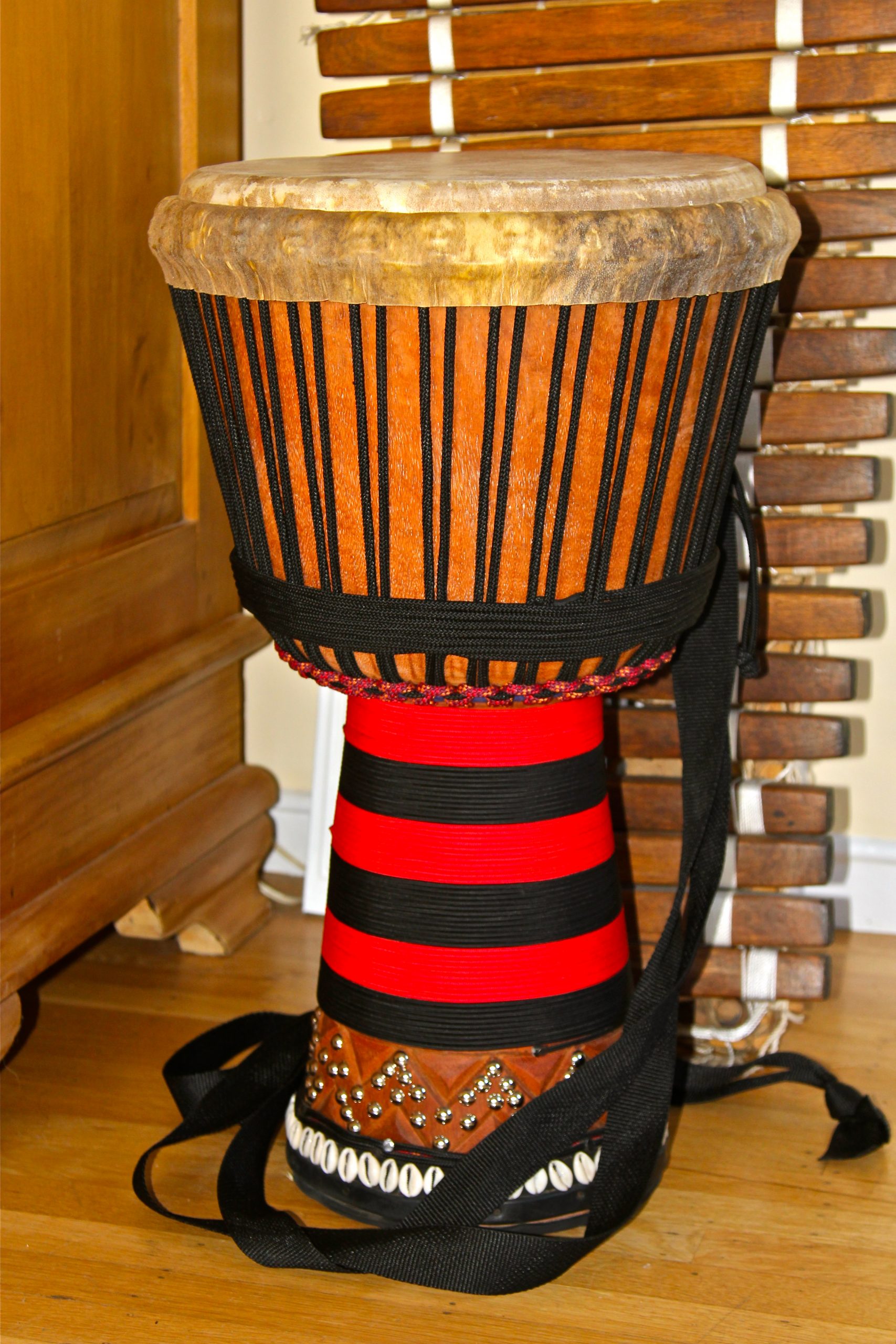Solo now, learn later!
Beginning drummers often ask me or write in with the question, how do they express themselves and their inner rhythm on the djembe drum with in the traditional west african rhythm context? When playing traditional rhythms almost always, beginning drummers want to learn to solo at once. They want to move the basic accompaniment parts that repeat and make them “more interesting”. Because they are not feeling the composition, the piece, the fullness of the composition they do not appear to be interesting.
If we sit in the rhythm, feel it fully, surrender to it and let it be what it is with out putting our need for change or to “make it our own” on it, then we can actually get somewhere and something out of it with out having to change it. The rhythms are fine and perfect as they are. There is plenty going on creatively if you just listen to what you are playing and how the parts fit together. If you are really playing the music correctly it is very challenging especially with push and pull feels and you will never get bored.
Some drummers want to skip learning to make the sounds correctly, learning patterns and just solo, do their own thing and express their inner rhythm. But I ask you, how can you run when you can’t even crawl yet? You have to crawl, walk, jog then run.
I also hear complaints of teachers that are too strict and point out whenever a mistake is made or if the rhythm is not being played back as it was shown. The students are shocked that they have to do it the same. They want it to be easy. They want it to be accessible at once. To be westernized. Let it be what it is, if you put in the time it will indeed come to you. I speak from experience as it is always difficult for me to learn new material at first.
What if it was a piano class you were taking? And the teacher wanted you to play Mozart exactly like it was written, recorded and he or she played it. When you made a mistake, and it was not the same as he or she showed you, a good teacher would point it out. When i took piano classes i paid for the best teacher who was very strict. I not only had to play everything correctly but I was required to practice it daily for a set amount of time. He was so good that he knew if you missed a practice session.
The first thing we all need to understand is that the drum is indeed a musical instrument and an art form. As soon as we understand this, studying becomes much different. You have to learn how to play an instrument before your can fully express yourself. If you picked up a guitar, would you expect to express yourself on it immediately? I don’t think so. To express your own inner rhythm with in the context of traditional west african drumming you first need to learn the language. Drum language.
This is done through study (which hopefully you are doing). For playing the djembe, you learn to speak on the drum, using tone, bass, slap and touches. Like a baby you have to crawl before you walk. You are learning to speak in another language. Just like if you were to learn French or Spanish. Once you can make the sounds correctly or at least well and play basic patterns proficiently you can progress to learning solo techniques, learning to use phrases and then groups of phrases.
There are solo rides that you will be taught that fit on top of and interlock with the basic patterns you are learning. A solo ride can be a traditional sentence or phrase from Melenke language or just commonly used solo phrases put together as a theme that locks into the rhythm. It feels like a key going into a lock and turning when you play them. In time, after practice, using the solo rides you can also create and add your own ideas…A solo weaves through the rhythm structure as well as rides on top of it. You have to know the piece, the arrangement in order to play to it, to play with it or to play off of it as well.
Traditional drumming is not for everyone and you have to ask yourself if this is for you? If it is, it is important to find a teacher you resonate with. If it’s not, there are plenty of other styles and forms of drumming such as drum circles where there are not requirements for discipline, skill, communication, harmony, musicality, space, dynamics or even respect for the drum for that matter. I am not saying that these qualities can not be found at a drum circle I am saying it is not a requirement as it is in traditional drumming. You have to learn the form before you drop the form.

